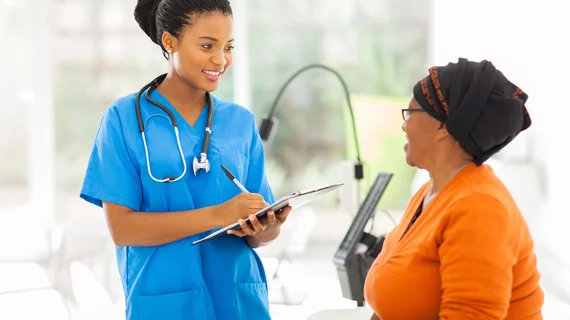Healthcare groups encourage black women to monitor, manage their blood pressure
Numerous healthcare organizations have joined forces to launch a new ad campaign focused on helping black women learn more about monitoring and managing their blood pressure.
The “Release the Pressure” campaign is a collaboration between the American Medical Association, American Heart Association, Association of Black Cardiologists, Minority Health Institute, National Medical Association and ESSENCE, a massive media company aimed at reaching black women. The groups have worked closely to deliver a message that reaches as many eyes and ears as possible.
“We have the opportunity to collectively improve our health and we know that preventive care is vital to breaking the devastating impact of high blood pressure within the black community,” AMA President Patrice A. Harris, MD, MA, said in a prepared statement. “By joining forces with national physician organizations, heart health experts and ESSENCE, we will partner with thousands of black women, sharing resources that are important to understand their blood pressure numbers and take action to manage their blood pressure. Combining our collective efforts, we strive to improve health outcomes within the black community.”
Hypertension is nearly 40% more common among black women in the United States than white women, a sign that the “Release the Pressure” campaign could potentially make a substantial difference throughout the country. The organizations established a website where interested parties can pledge to take part in the “healthy blood pressure movement,” urging black women to take four crucial steps:
- Work with a healthcare provider to establish a blood pressure goal
- Monitor blood pressure at home
- Identify specific fitness and health goals
- Identify a ‘squad’ that can help you with your goals and check in with them regularly
Magazine features, virtual town halls and podcasts related to “Release the Pressure” are scheduled to occur in the months ahead. The campaign’s goal is to engage more than 300,000 black women by 2021.

